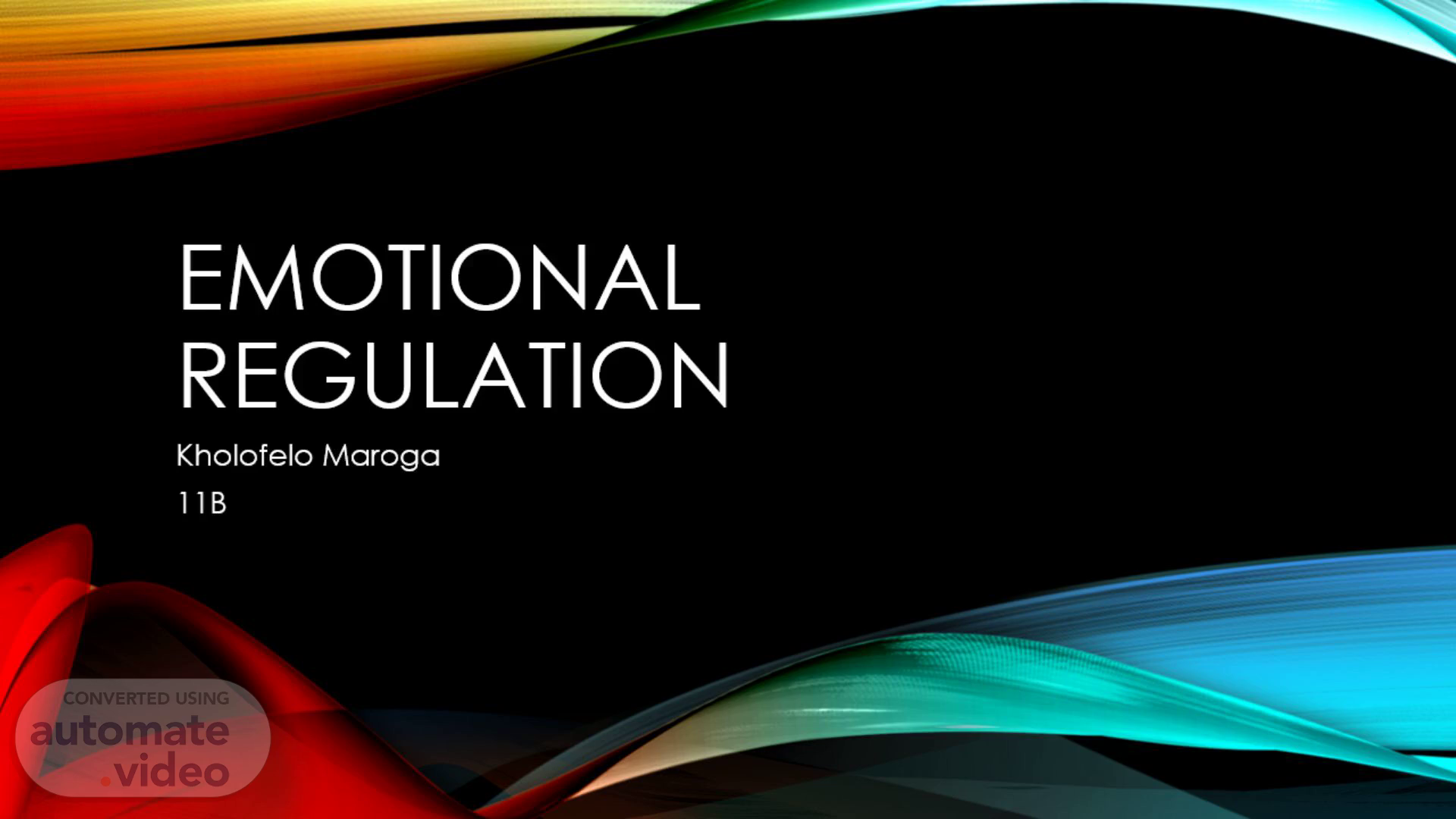
Emotional Regulation
Scene 1 (0s)
[Audio] Emotional Regulation. Emotional Regulation.
Scene 2 (6s)
Contents. Emotional Regulation Emotional Regulation Strategies Benefits of Adaptability as an emotional regulation strategy How to Develop Adaptability Skills Emotional Dysregulation.
Scene 3 (16s)
[Audio] What is emotional regulation? Emotional regulation is the ability to control one's own emotional state. It may include behaviors such as evaluating a tough situation to lessen anger or anxiety, suppressing evident symptoms of grief or fear, or focusing on reasons to be cheerful or calm. Emotional Regulation involves 3 components: Initiating actions triggered by emotions. Inhibiting actions triggered by emotions .Modulating responses triggered by emotions..
Scene 4 (51s)
[Audio] Emotional Regulation Strategies Meditation Receiving Therapy Labelling Emotions Exercising Breathing Exercises Journalling Identifying your triggers.
Scene 5 (1m 4s)
[Audio] Benefits of Adaptability as an emotional regulation strategy Improved Resilience: Adaptability enables teens to recover from obstacles and disappointments. It's not just about overcoming obstacles; it's also about adapting as things change. Teens who learn to adapt develop resilience and are better prepared to deal with life's ups and downs. Improved Problem-Solving Skills: Adaptable teenagers are resourceful. They devise imaginative answers to unanticipated difficulties. When confronted with new issues, they think critically and consider several alternatives. Increased Confidence: Successfully handling change and uncertainty enhances one's confidence. Teens who adjust effectively report feeling more capable and empowered1.Better Relationships: Adaptability promotes empathy and understanding. Teens who can adapt to various social situations and personalities form better bonds with their peers, instructors, and family members.
Scene 6 (2m 6s)
[Audio] How to Develop Adaptability Skills 1st Improve your problem-solving abilities. Problem solving allows you to address particular challenges as they occur... 2nd Learn to welcome change. You've heard it before, but it bears repeating: you'll always have to deal with change. 3rd Maintain an open mind... 4th Check your ego at the entrance… 5th Practice mindfulness 6th Push yourself beyond of your comfort zone..
Scene 7 (2m 38s)
[Audio] Emotional Dysregulation Emotional dysregulation refers to an emotional response that is poorly regulated and does not fit within the commonly acknowledged range of emotional reactions. It is also known as noticeable fluctuation in mood, mood swings, or labile mood. Emotional dysregulation reduces our capacity to adjust to changes in our lives. We stop using our coping strategies and become more easily distracted, which is why we frequently begin to oppose changes. Objective assessment is a fantastic practice to develop adaptation. Consider the scenario that your closest buddy is going through when you find yourself overcome by negative feelings that you wish to suppress and risk reacting destructively. In this case, what would you have advised them to do? If you would like, write down your responses. Then, consider whether you are taking the same actions for yourself..
Scene 8 (3m 32s)
[Audio] Thank you for your time.. Thank You. Smiling Face with No Fill.